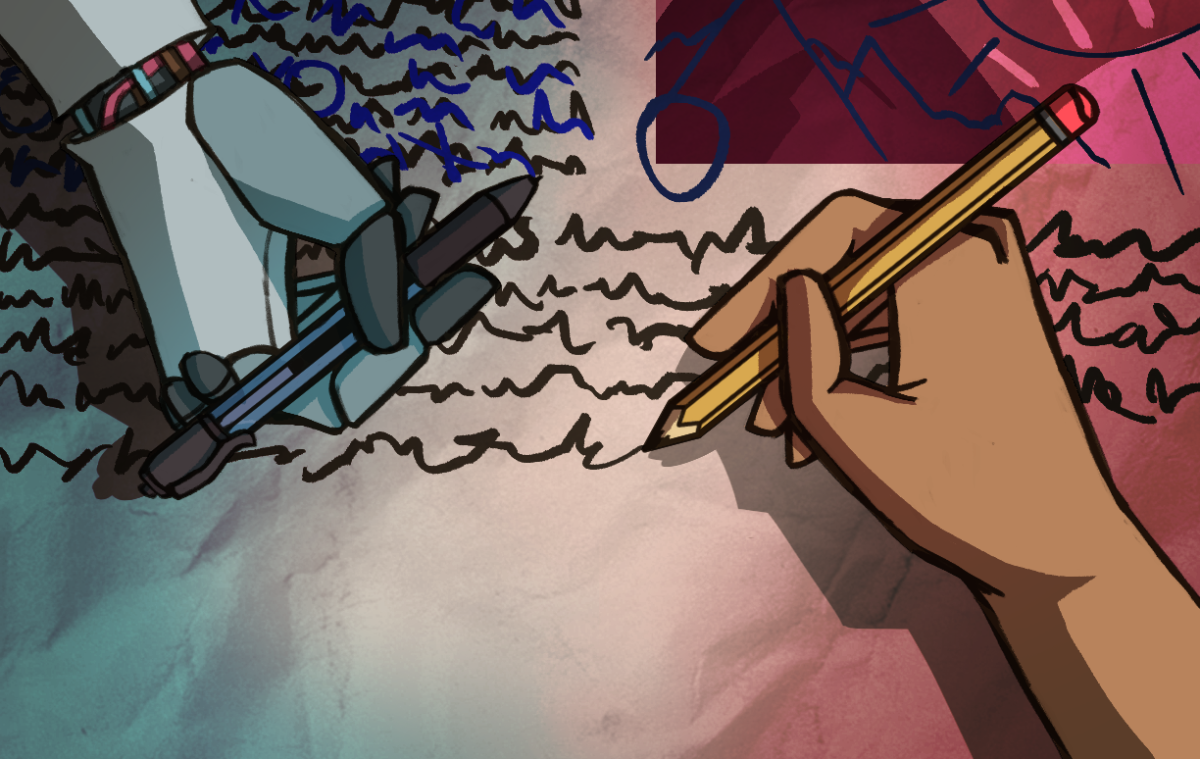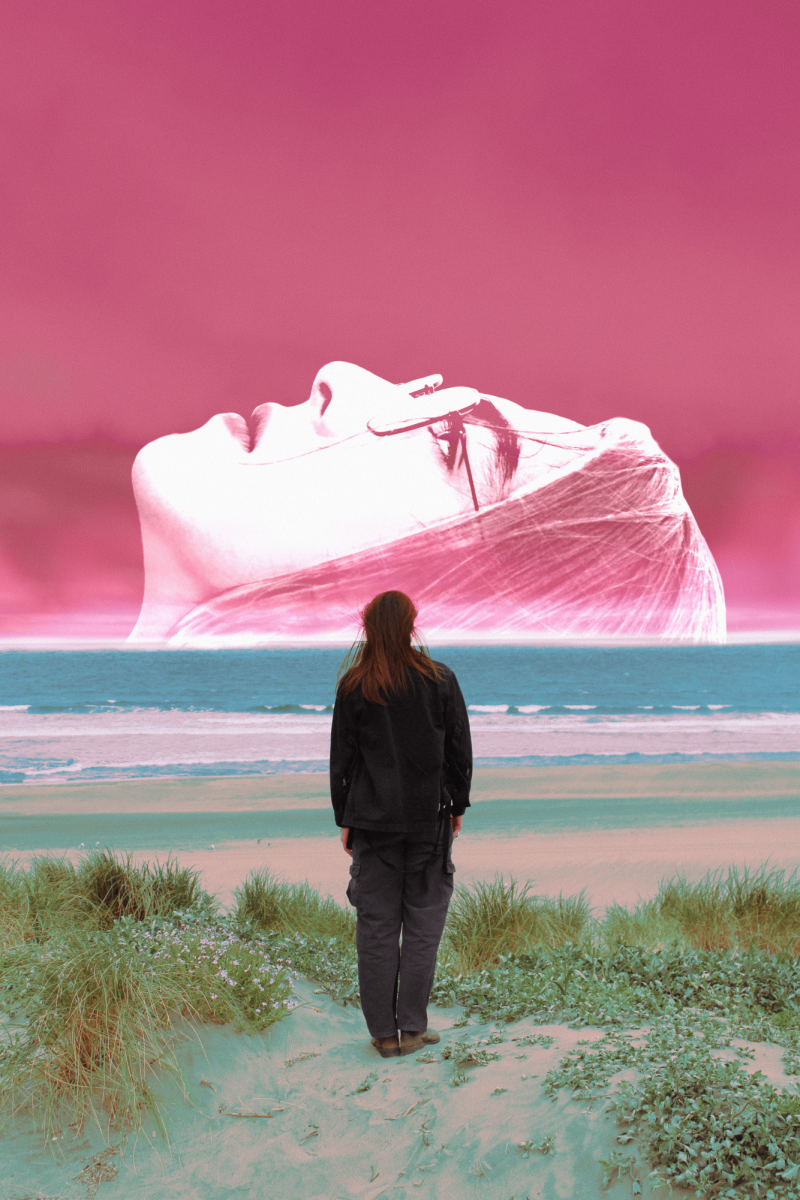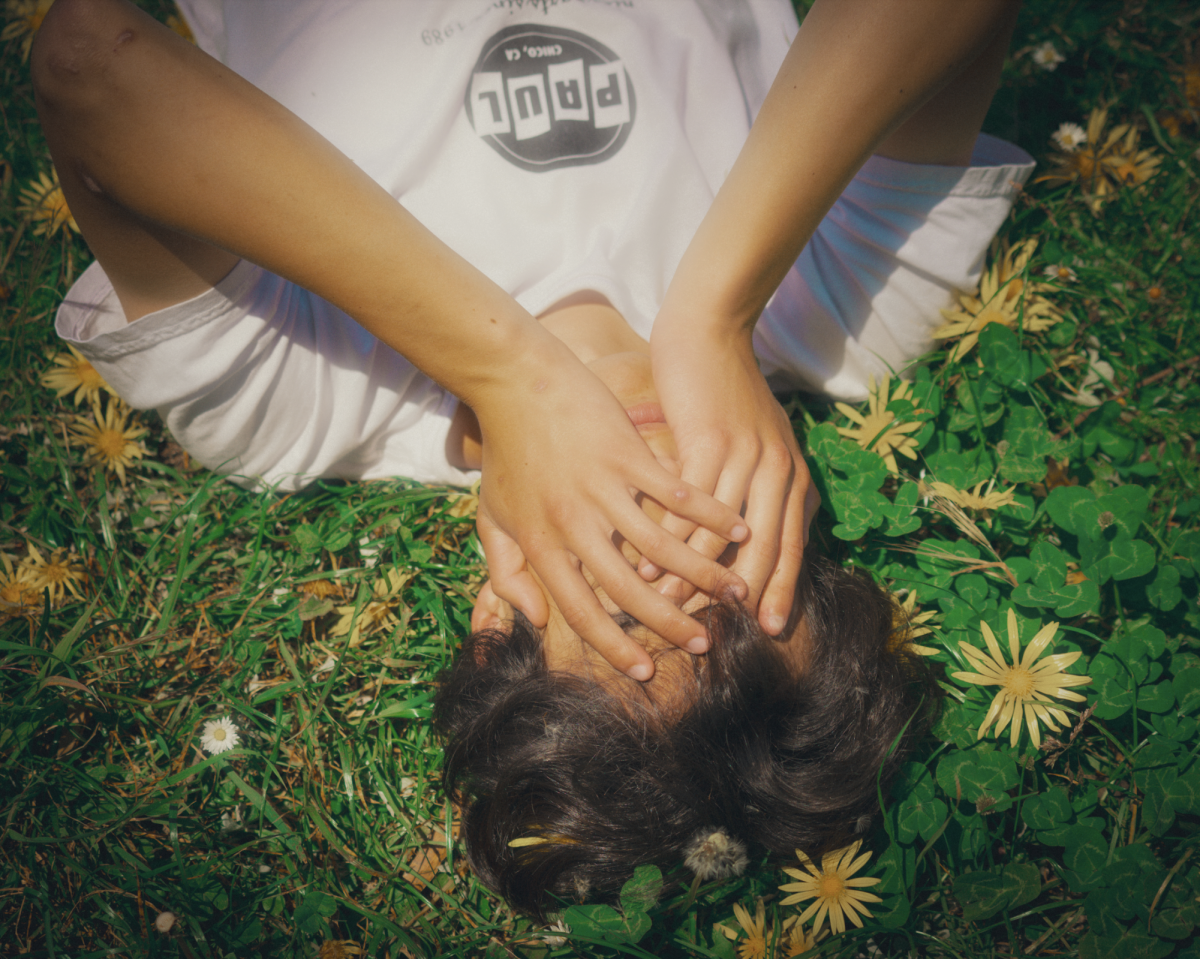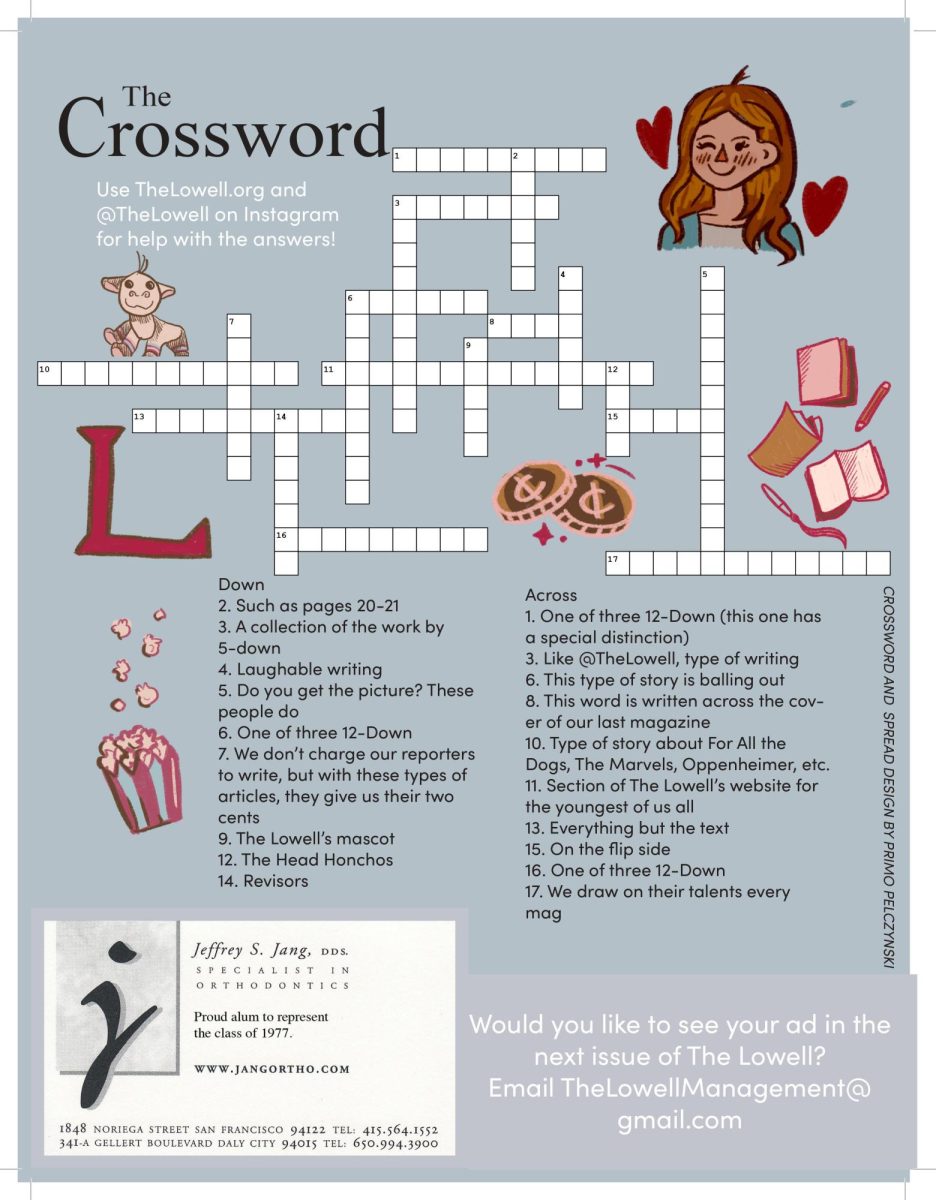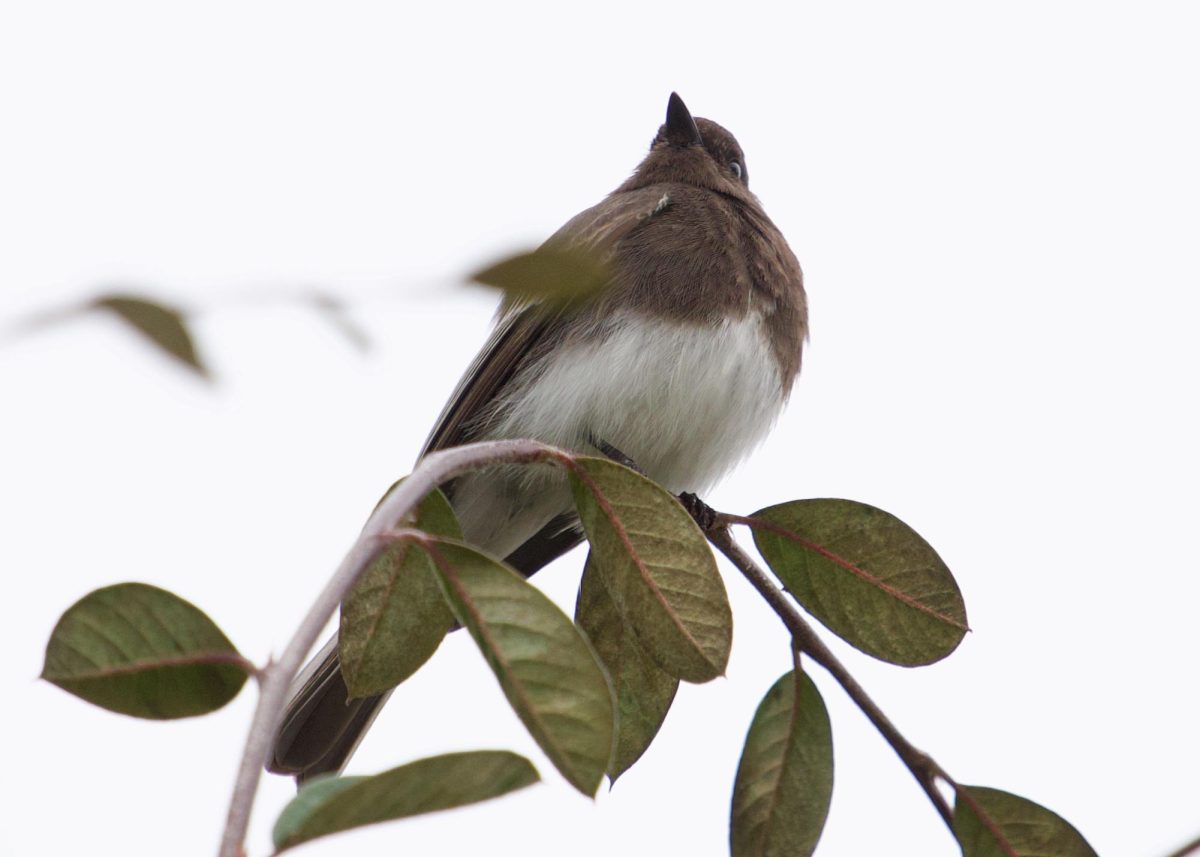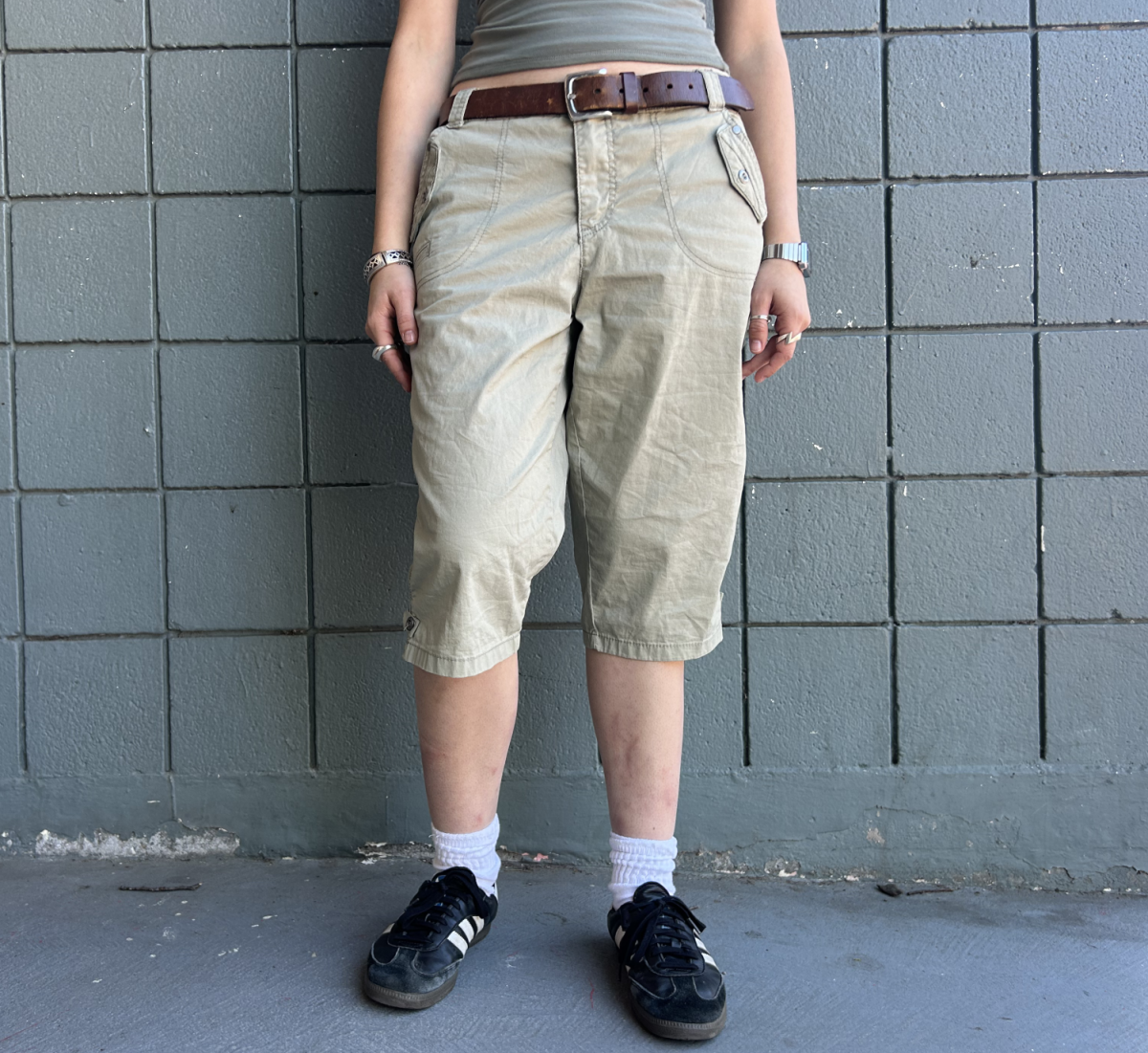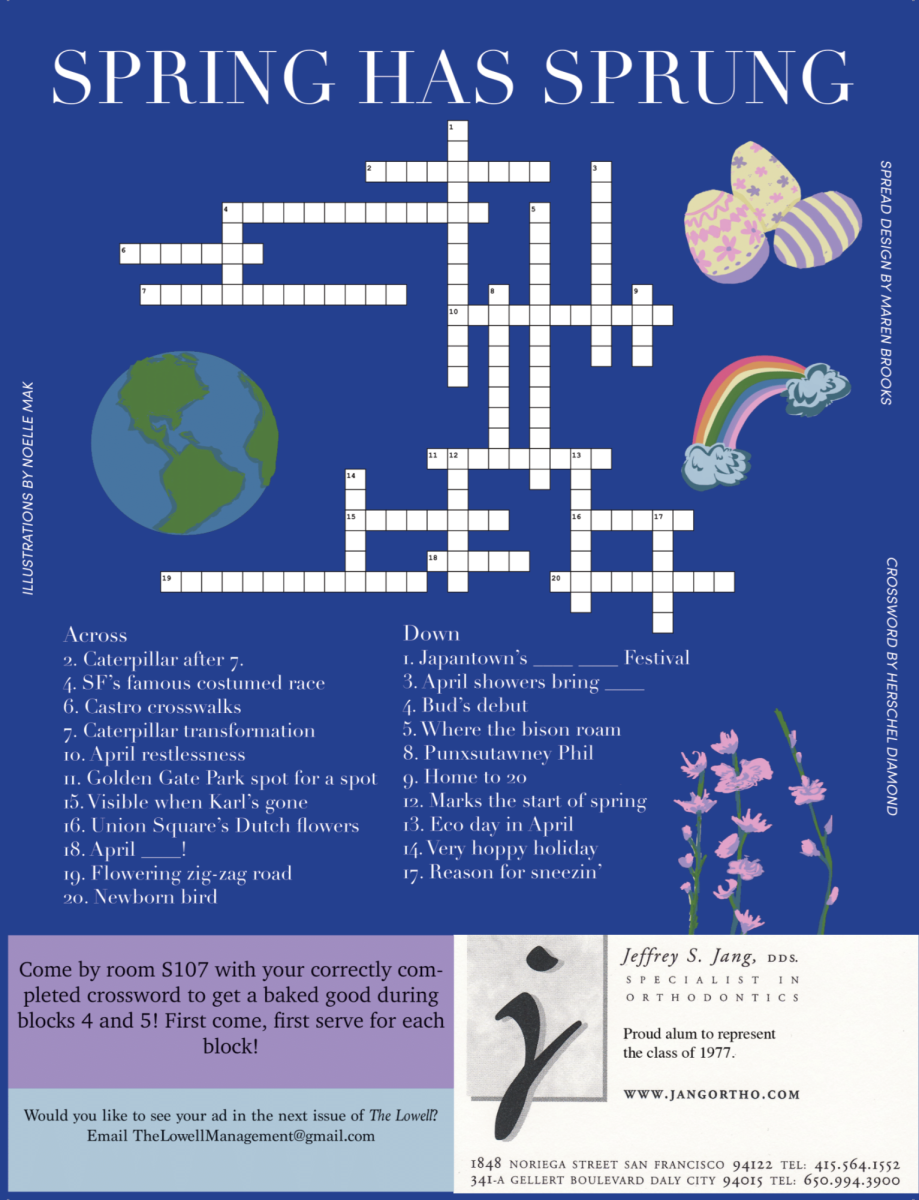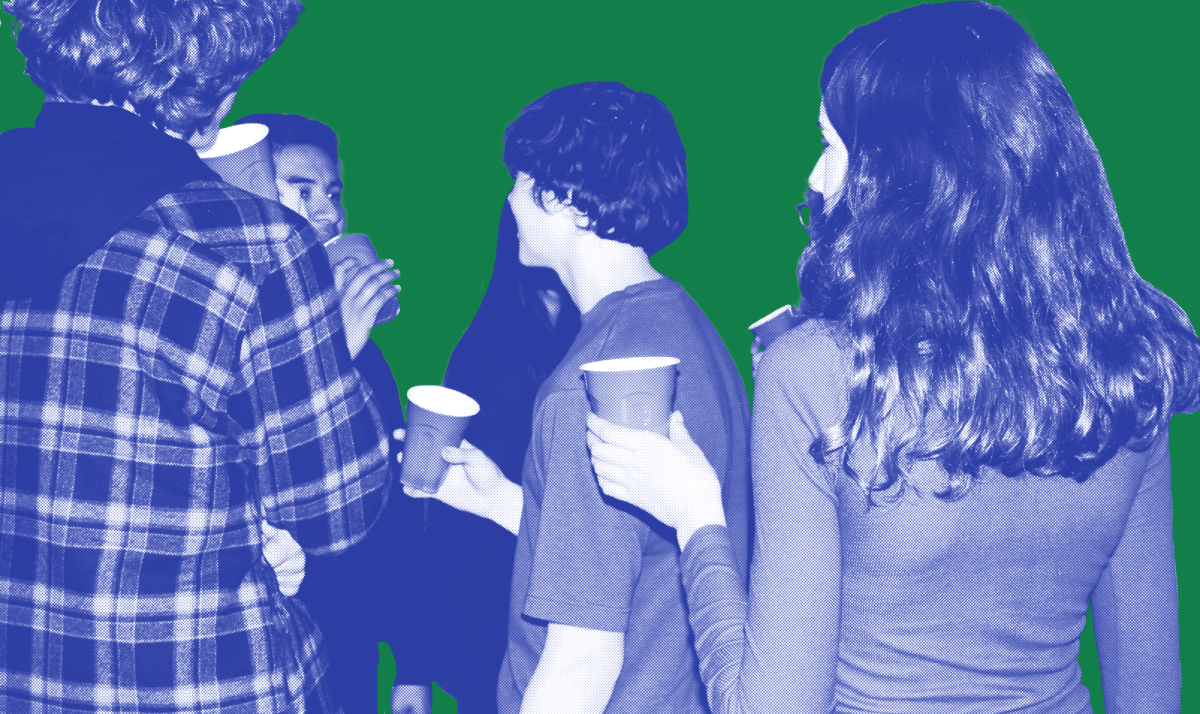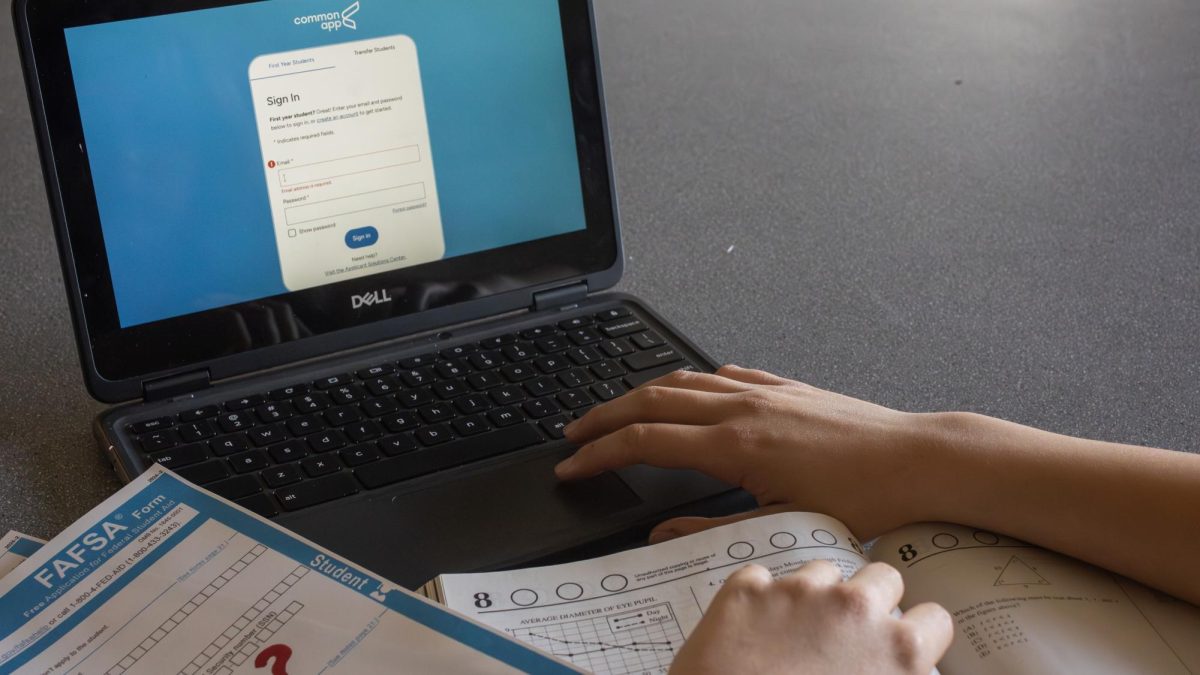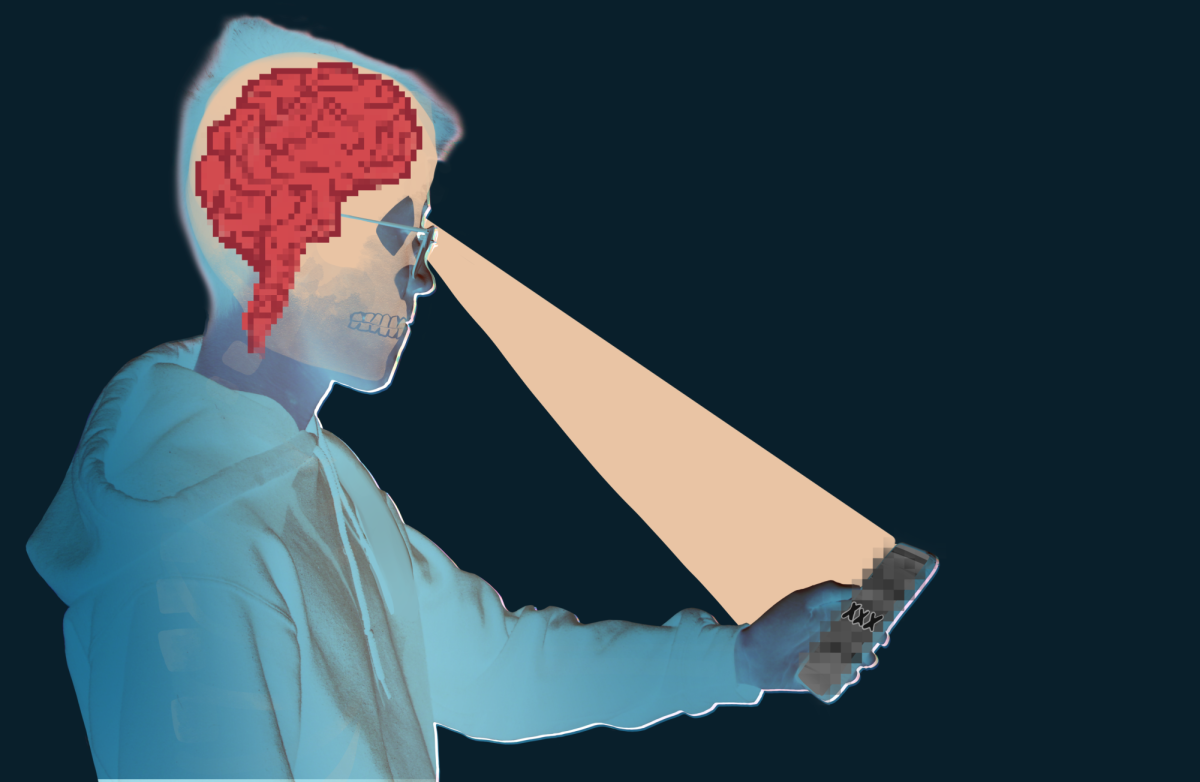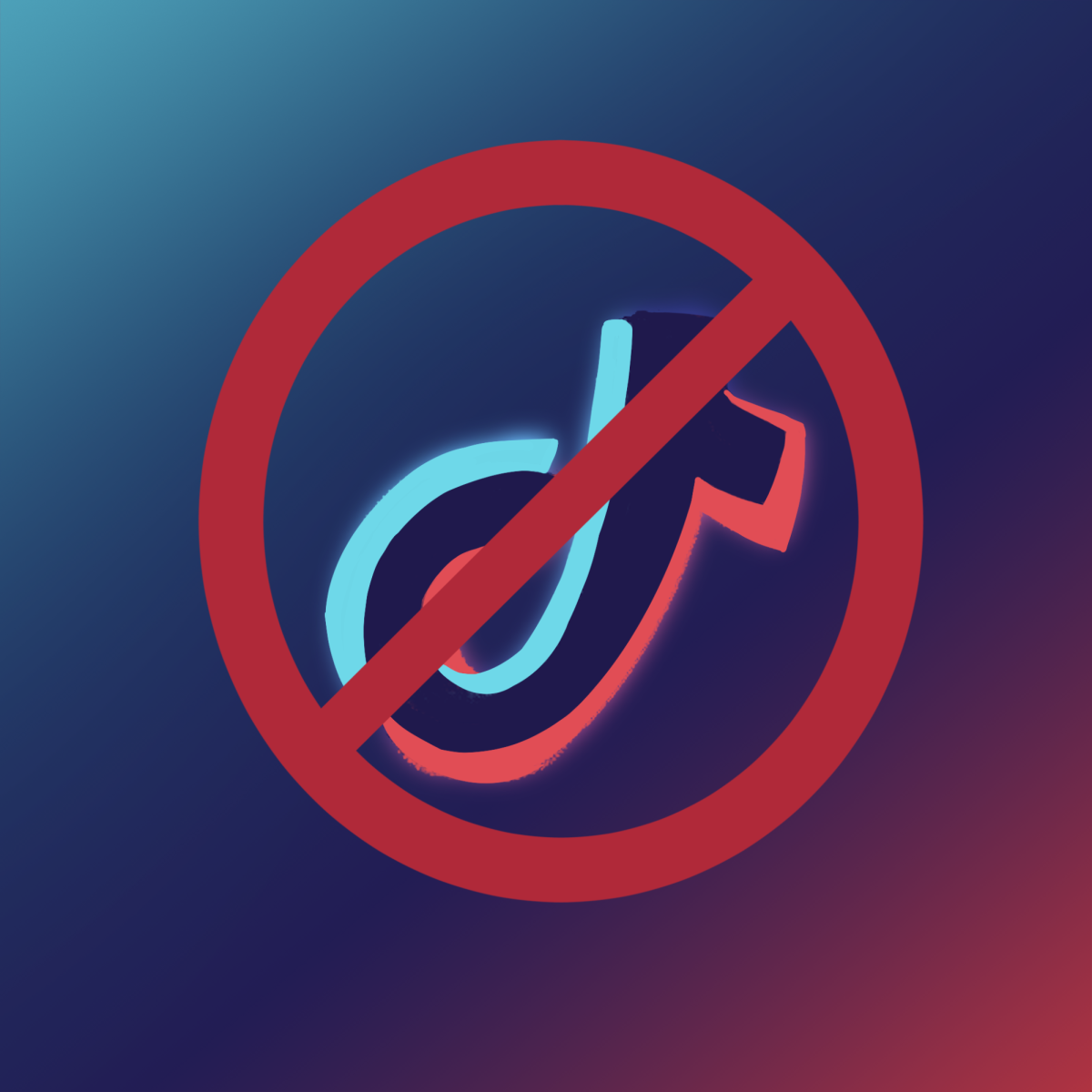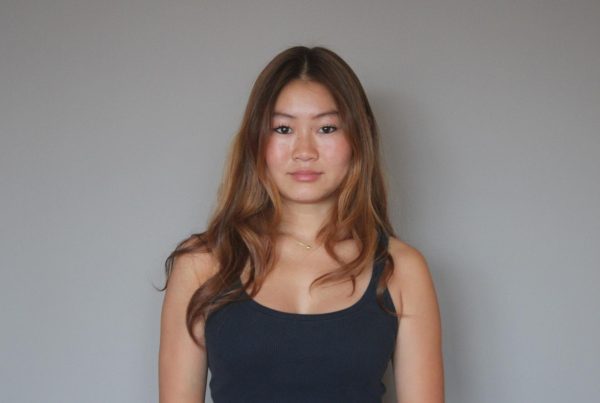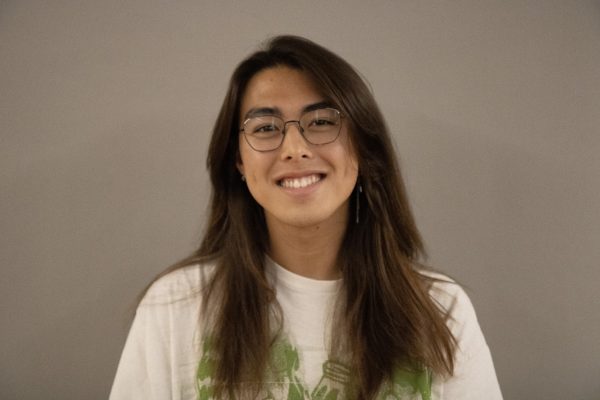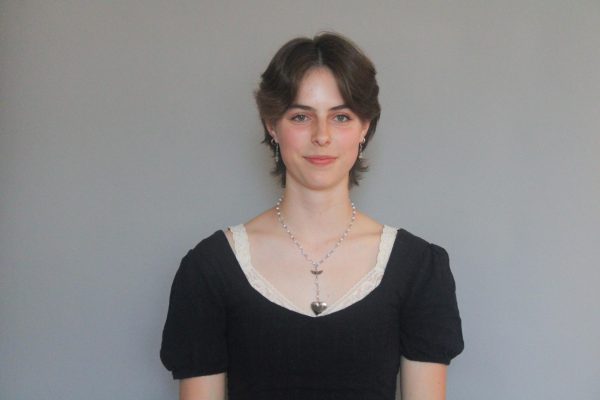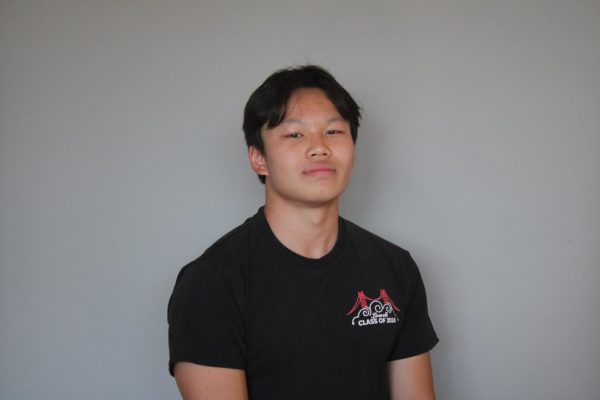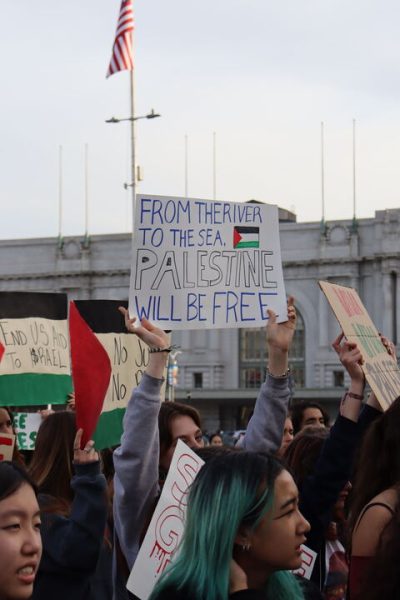
On Wednesday, Jan. 24, Lowell’s Alumni Association (LAA) released an official statement regarding recent student protests against the Israel-Hamas war as “grossly antisemitic” and a “disruption” to learning. While student activists like sophomore Zayna Elkarra have criticized the message on social media and urged LAA members to retract the statement, other students, like John, a senior under a pseudonym, support the LAA’s stance. In light of the contentious situation, SFUSD Superintendent Matt Wayne emailed all staff on Jan. 25, affirming the district’s support for student voices and free speech within the California Education Code, as well as condemning antisemitism, Islamophobia, and other forms of hate. Despite receiving backlash, LAA president Kate Lazarus remains consistent in her stance against the student walkouts, refusing to retract the statement.
Unanimously approved by the LAA executive board, the statement deems the student protests occurring on Oct. 18, 2023, and Jan. 10, 2024, unacceptable. According to Lazarus, their message intends to mitigate any antisemitic sentiment sparked from student protests. The LAA condemns the use of the slogan, “From the river to the sea, Palestine will be free,” which students chanted and displayed on signs during the protests, believing it calls “for the eradication of the state of Israel, and the inevitable killing or displacement of the people of Israel.” The alumni board also believes that the walkouts have disrupted classroom activity. Lazarus clarified that although she supports students’ right to free speech, activism should not interfere with class instruction. “What we don’t support is disrupting studying at school and disrupting classrooms, targeting students or teachers,” she said.
Some students like John, who is hesitant to reveal his full name due to his unpopular stance on the war, agree with the LAA’s choice to remain unyielding on the released statement. As a supporter of Israel’s war against Hamas and an advocate against the genocide of Palestinian people, John believes that his views are not welcomed by the student majority. He sees the recent protests as “problematic” and believes they have caused students sharing his views to feel uncomfortable on campus. “They’re hindering classroom performance in the way that they’re making students here at Lowell feel unsafe,” he said. “I am afraid if I say certain things or use my real name, I may face a lot of backlash since I’m not in the majority.”
However, many students like Elkarra, who have participated in the protests, do not believe the LAA’s statement reflects their views. Since its release online, over 260 comments have been left on the LAA’s post, with most clarifying how the LAA misrepresented their perspectives. Lowell students have also reacted by calling out the LAA’s ignorance for accusing their recent advocacy as antisemitic. According to freshman and student activist Amaya Tawasha Diwan, protest organizers explicitly condemned antisemitism at the beginning of walkouts. She is frustrated that the LAA considered the slogans used during walkouts as antisemitic. “‘From the river to the sea, Palestine will be free’ literally means from the Jordanian River to the Mediterranean Sea, Palestinians will be free,” she said. “It’s not saying to eradicate anyone. We’re against genocide.” Walkout organizer Elkarra is aware of the controversy surrounding the phrase, however she does not see it as hateful. “I know that its true meaning calls for peace,” she said. “I’m not going to stop saying it just because people want to criminalize it.”
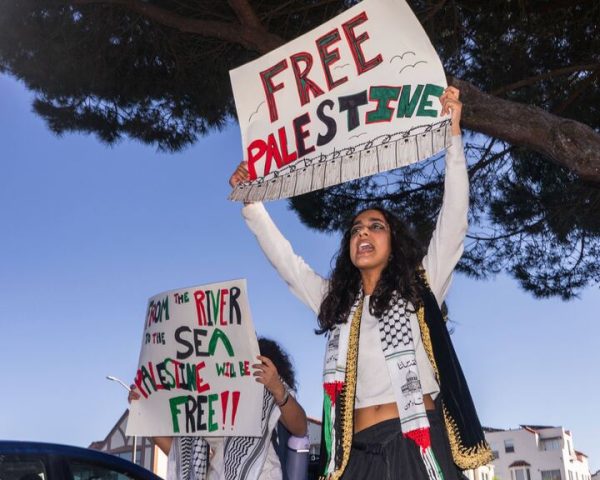
Additionally, Elkarra, who is Palestinian, expressed frustration that Islamophobic, anti-Arab, and anti-Palestinian hate were not addressed alongside antisemitism and accused the board of racism. Tawasha Diwan recalled seeing threats made against Arab students, which, combined with anti-Arab violence across the country, made her afraid of coming to class. Students also took issue with the LAA calling the walkouts a “disturbance.” “I think that if any classroom activities were interrupted, it would have been brief and barely noticeable since we were marching outside,” Tawasha Diwan said. “The first walkout, there were speeches, then we marched up Eucalyptus. The second walkout was outside in the rain, with barely 20 people. Any disruption would be barely noticeable.” Elkarra was also upset that their walkouts were accused of interfering with student learning. “What’s disturbing is the fact that we are watching a genocide happen right in front of our eyes, and the school isn’t talking about it,” she said.
In response to claims of their message being one-sided, Lazarus said that the LAA was not attempting to take a stance on the conflict in Gaza. “We respect the opinions and experiences of all students,” Lazarus said. “We are not begrudging anyone or their opinions about, for example, how the war in Israel should proceed…. [our statement] shouldn’t be controversial or make anyone feel targeted.” Lazarus also stood by the LAA’s claims that the chants students used were antisemitic, despite students like Elkarra and Tawasha Diwan arguing otherwise. “I appreciate the sentiment, but from our perspective, a statement like ‘From the river to the sea’ is inherently antisemitic,” she said. “So, regardless of how you preface it, if that’s going to be your rallying cry, then we have concerns.”
Although Lazarus claimed that the LAA intended to uplift all Lowell students, their statement continues to inspire mixed responses. For Elkarra, this incident will not impact her future activism, and she will continue urging the LAA to be held accountable for their actions. “I would like them to take accountability and educate themselves on what’s actually happening and what the meaning of our chants are,” she said. While John agrees with LAA’s message, he also believes there needs to be a middle ground for including student voices. “This is kinda tricky because you have to find an equilibrium between free speech and making people on campus feel safe.”



